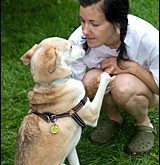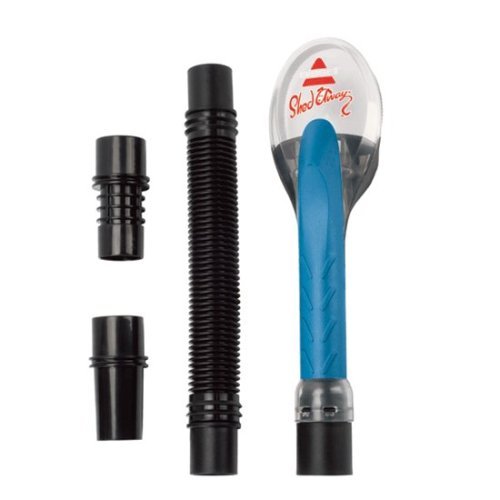The Golden Retriever Breed: 5 Facts For New Owners
Are you considering getting a golden retriever, or have you recently added one to the family? Learning about the Golden Retriever breed is vital to helping you choose and take care of one (or more!) of these wonderful dogs. Here are a few facts about golden retrievers that you might like to know.
Golden retrievers were bred as hunting dogs and water dogs. The breed was created in the 19th century when fowl hunters started crossing different kinds of dogs in search of a dog that would be able to retrieve downed birds, regardless of whether they landed on land or in the water. In addition to being great water dogs, the Golden Retriever breed was also good for hunters because they had gentle mouths, which means that the downed birds were retrieved without being damaged by the dogs' teeth.
Golden Retrievers are often used as service dogs. For example, many Golden's are trained as guide dogs for blind people. Other careers for this breed include hearing dogs for the deaf, water rescue dogs, bomb sniffing dogs, and search and rescue dogs. The same qualities that make Golden's great family pets, such as their patience, intelligence, and loyalty, also make them great service dogs.
Golden retrievers don't make good guard dogs! If you want a tough dog to act as a guard dog, this breed is not for you. In addition to being patient and intelligent, they are very friendly and gentle. Unlike many other breeds, who tend to bond to their handlers and no one else, golden retrievers are typically affable and friendly to strangers.
Golden retrievers are athletic, high energy dogs. Although they were originally bred as hunting dogs, which meant that they needed to be able to wait patiently and not scare away the birds until they were called on to retrieve one, they are actually extremely athletic dogs. Young Golden Retrievers in particular are rather high energy, and need to have plenty of exercise. Because they are also very intelligent, they should have some sort of mental stimulation as well. For these reasons, many owners train their dogs in agility, which requires them to traverse an obstacle course while paying close attention to their handler for their next instructions.
Golden retrievers tend to have some genetic health issues, such as hip dysplasia. You may have heard that purebred dogs frequently have genetic disorders that impact how healthy they are and how long they will live. Golden retrievers are one example of a breed that is plagued with some health disorders. For instance, hip dysplasia is one example of a genetic health issue that, according to some reports, affects as many as one in five golden retrievers. In a dog with hip dysplasia, one or both hips is shaped wrong, causing a lot of play in the joint that will eventually cause wear and tear to the cartilage, pain, and arthritis.
The concerns surrounding hip dysplasia don't mean that you shouldn't get a purebred Golden Retriever, but it might be wise to consider crossbred dogs, which tend to be much healthier than purebreds. If you do want a purebred golden, and you plan on getting a puppy, choose your breeder carefully. Ensure that both parents (and the grandparents too, if possible) have been x-rayed to make sure they show no signs of hip dysplasia. You might also want to have the puppy checked out by the vet and x-rayed before buying it. Since the problem is so prevalent in the breed, the same goes for older dogs and dogs with unknown breeding. Being cautious about the dog you adopt will ensure that the pet you allow into your home and your hearts is one that will likely live a long and pain-free life.
There are, of course, many other things to know about the Golden Retriever breed if you are going to provide your dog with the best home -- or, perhaps, decide that a golden is not the right dog for you. The more research you do on this wonderful breed, the better equipped you will be to make a decision and provide the best possible home for your dog!

 Dog Tricks – Dog Training Level 1
Dog Tricks – Dog Training Le
Dog Tricks – Dog Training Level 1
Dog Tricks – Dog Training Le
 Bissell Shed Away Review
Pets can get expensive and t
Bissell Shed Away Review
Pets can get expensive and t
 Our Thoughts On Neutering
My Two Pugs
Credit: Personal Photogra
Our Thoughts On Neutering
My Two Pugs
Credit: Personal Photogra
 Is Chocolate Poisonous To Dogs?
Uh Oh. Your Dog Just Ate So
Is Chocolate Poisonous To Dogs?
Uh Oh. Your Dog Just Ate So
 How To Train Your Golden Retriever
Golden Retriever Puppies
Credit: Phot
How To Train Your Golden Retriever
Golden Retriever Puppies
Credit: Phot